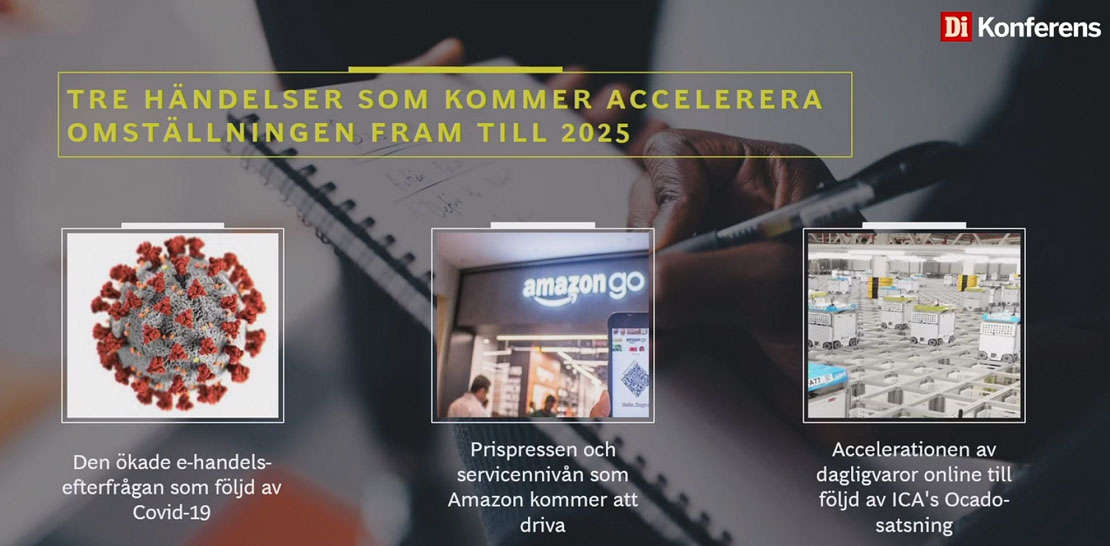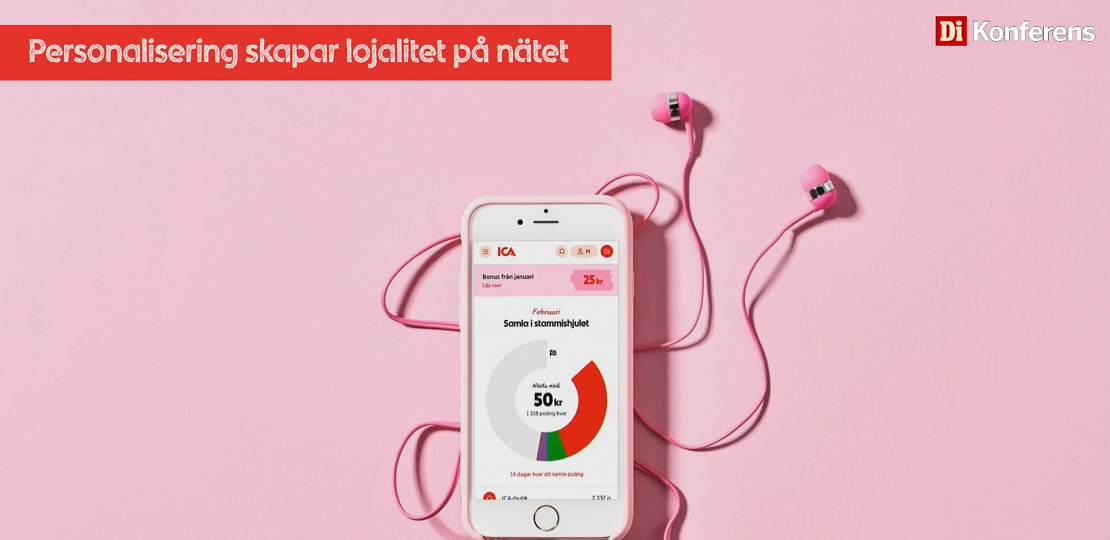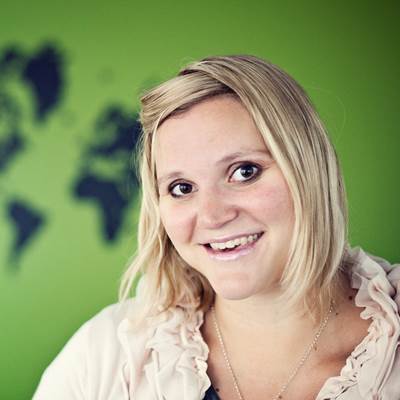In the first part of the conference Di e-commerce, we talked about the strong growth e-commerce has had this year in Sweden and got to see trends and how quickly e-commerce has been forced to change to meet new customers and customer needs. How to combine profitability and growth in the e-commerce industry was a continuing theme.

Growth Rocket's successful journey globally - how do you build an organization to succeed?
Fredrik Palm, CEO of Desenio, thinks it's good to find the small niches that may not be so interesting for the big giants. Desenio sells items and paintings for the home with great creative height within the company.
You have to have products that customers want and be where people are. Influencer marketing is the fuel that drives brand and traffic for Desenio. A lot is also about the search engines where a lot of work is put into being visible. In the countries where the development of e-commerce is further ahead, it is usually more expensive to acquire customers via online marketing than in, for example, Germany, which has not come as far as the UK and Sweden.
The road to sustainable e-commerce
Pär Svärdson, CEO of Apotea, Charlotta Szczepanowski, Head of Sustainability and Quality at Coop and Thomas Jensen, Sweden Manager at Boston Consulting Group, had a panel debate on sustainable e-commerce. Logistics, transport, returns, last mile and packaging - there are many different aspects when it comes to making e-commerce more sustainable. The panel did not agree and that is probably how it looks in general. Is it more sustainable to go and pick up a package from an agent, or have it delivered directly to your home?
At Apotea, they focus a lot on reducing everything unnecessary, such as packaging to packaging that serves no purpose. They inform their suppliers about it to bring about a change and also post information on the site so that customers can make an informed decision. The younger customers are very aware and knowledgeable and help to drive development.
Customers have gone from the fact that it is a sustainable alternative to buy organic to that there is so much else to take into account also to think sustainably when shopping for food. Coop is now working hard to clarify and declare so that you will see what the products affect based on 10 different aspects such as cultivation and manufacturing, transport, packaging.
From broad category expansion back to focus on books - which strategy has the best chances of success?
Another journey of change is Adlibris, which once again focuses on its core business - books. Jonas Karlén, CEO of Adlibris, says that the acquisitions they made to broaden the categories both led to successes and setbacks, but where they felt that it became too scattered and that the customer experience deteriorated. They had difficulty managing the entire chain when previously it was only focused on books.
Finding their new strategy - they started watching the reading, is it really so extinct? A survey was conducted where 8/10 stated that they thought they would read as many or more books in the future. They continued to look at the migration to online - the physical book is often supplemented with audiobooks and e-books. Fact books, children's books and student literature remain strong in physical form. The increased competition will increase further now that Amazon is entering Sweden. Now the focus is on books and with some ancillary products such as gifts, games and crafts. Rather than being half good at a lot, they are now investing in being good in a few categories and doing really well.
Data analysis and automation of pricing and purchasing is a very important area in the future where Adlibris has a lot left to dig into, says Jonas.
Exploration into the e-commerce decade

The grocery trade is acting fast to enter the digital world and the Corona pandemic has really pushed this when several customers discovered food online.
Anders Svensson, CEO of ICA Sverige, spoke about the transformation that the grocery trade is going through. ICA is the online market leader and sees that the increase will continue. During Q2, the increase was 114% for the market and 148% for ICA compared with the same quarter in 2019.
He talks about e-commerce with food has become popular. For a long time, this was something that was mostly for families with children with good finances in the big cities. In 2015, ICA decided to press the gas and invest online so that customers were judged ready.
Personalization creates online loyalty. Recipe pages can be customized when logging in to ICA.se. It's not just about what you shop for but also about where you shop. Maybe you shop for different things at the supermarket when you are at home and other things at the local shop when you are on holiday.
Last mile and the digital marketplace are important areas for creating a better customer experience. They work with ancillary services, you may also want to be able to deliver other goods and packages when you still deliver the food.
ICA has invested in Ocado in order to automate more, it is an efficient online grocery system that will be implemented in 2022. 40,000 items will be offered in an automated warehouse.
Less bad isn’t good enough - only net zero will do
Zalando is one of Europe's leading fashion companies with more than 2,500 brands on its site. David Hejgaard, Nordic Manager at Zalando, talked about the fashion industry's share of emissions and what they can do to improve the environmental impact and make more sustainable choices.
Packaging is an important part where it should not be larger than necessary and in a better material. They want to make it easier to find sustainable products. In the filtering, you can choose that you only want to see sustainable products such as fair trade and eco-friendly such as organic cotton. Zalando will also be able to sell used products to extend the life of a garment.
As usual, the conference Di e-commerce contained a good mix of insights, cases and inspiration. Next year, we hope we can meet physically for more networking and share knowledge with each other in the industry.

